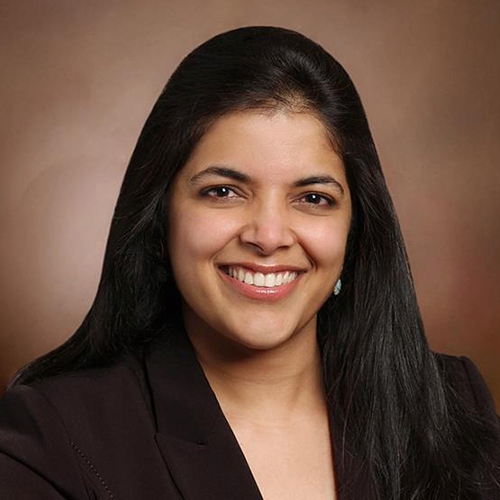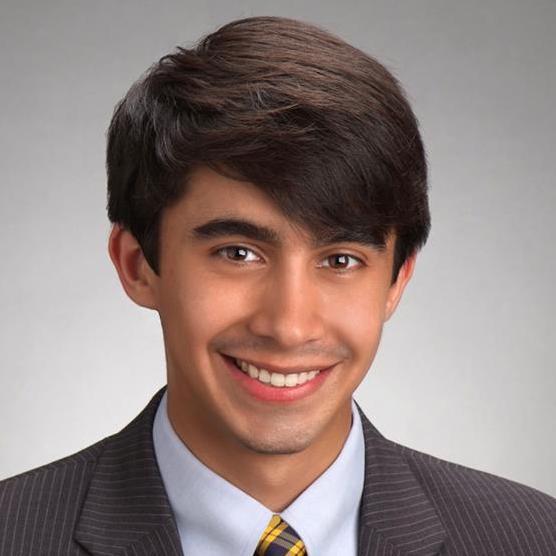A prestigious invitation to chair an educational program session at the annual meeting of the American Society of Hematology (ASH) in December 2023 offered University of Colorado Cancer Center member Manali Kamdar, MD, an opportunity to update the profession about two increasingly common treatments for relapsed lymphomas.
“The American Society of Hematology annual meeting is the premier hematology meeting where a lot of cutting-edge research gets presented,” Kamdar says. “This is the first invitation the CU lymphoma program has received to chair a session at ASH. I was asked to write a manuscript and deliver a talk on the discussion that’s happening in the field regarding these two treatments — how we choose the right one and how we sequence them. It was the icing on the cake regarding all the trials we are developing within the immunotherapy space in lymphomas.”
Comparing CAR T and bispecific antibodies for lymphoma
At the ASH meeting and in a corresponding paper authored with CU Cancer Center member Ajay Major, MD, MBA, Kamdar described recent developments in and research on two treatments approved for lymphomas in which other treatments have failed: CAR T-cell therapy and bispecific antibodies.
In 2022, Kamdar was the lead author on a publication that described the results of a multicenter, phase 3 clinical trial that showed the effectiveness of CAR T-cell therapy as a second-line treatment for large B-cell lymphoma.
“Clinical trials for CAR T were underway for four years before the FDA approved it,” Kamdar says. “Patients who got enrolled at the University of Colorado Cancer Center had the ability to get on a better drug four years ahead of time.”
Questions of time
CAR T therapy and bispecific antibodies both harness the power of the body’s immune system, but there are significant differences between the two, Major says. CAR T-cell therapy, which requires a hospital stay, is a process that involves removing some of a patient’s immune cells, re-engineering them to better fight cancer, and reinfusing them back into the patient.
Bispecific antibodies, a newer treatment that forces greater contact between immune cells and cancer cells, is an “off-the-shelf” solution that can be prescribed to a patient immediately and is often administered in an infusion center.
“There’s a concept called ‘time toxicity,’ or the amount of time that patients have to interact with the health care system,” Major says. “Do patients want to have all their time toxicity spent upfront, like in CAR T therapy, which is a one and done? Or are they OK having repeated health care interactions as they get bispecific antibody treatments over time? We're doing some research to try to better understand the time toxicity differences between those two, but a lot of it depends on the patient and what they want.”
Treatment calculus
Since CAR T-cell therapy has been around longer than bispecific antibodies, its results are better described, Major says — and the treatment seems to lead to long-term cure in a portion of patients, even those who didn’t qualify for the clinical trials that led to the therapy’s approval by the Food and Drug Administration.
“We now have what we call real-world evidence on patients who maybe wouldn't have met the criteria for the clinical trials but still got the CAR T, and many of them did extremely well,” Major says. “The risks of worsening side effects were not as high as we would have expected in patients who were sicker or not as fit as other patients. We try to recommend CAR T when we can, because it's been proven now, in a number of real-world studies, that patients still do really well.”
But given the limitations of CAR T-cell therapy — in addition to the hospitalization it frequently requires, the treatment has to be performed by experts at a highly specialized center like the CU Cancer Center — the off-the-shelf functionality that bispecific antibodies offer may make them more appropriate in some situations, Major says.
“Part of the calculus we talk about in the paper is, ‘Are there patients where we don’t have time to wait to get a CAR T cell made, and they might be more appropriate for a bispecific?’” he says. “Or we may have patients who live in neighboring states or out in the mountains, and they don’t want to come and spend several months doing the CAR T process. They'd rather get something closer to home.
“Bispecific antibodies, because they're off the shelf, any oncologist who sees patients in the community can get one of those drugs and give it to the patient right in the clinic,” he adds. “That's a major difference.”
A tool to aid decision making
In their paper, Kamdar and Major offer data on the efficacy and toxicity of each treatment, as well as a decision aid for determining which treatment is most appropriate in a given situation, taking into account factors including time, availability, administration of the medication, and the amount of caregiver support needed.
“The paper that we wrote is very timely, and the treatment paradigm we developed is meant to be not only for academic centers, but also community oncologists,” Major says. “How do we think about these two different agents, which are very different treatment paradigms, and how they should be prioritized for certain patients, based on their fitness level, their preferences, and other components?”
Looking ahead
Kamdar and Major plan to continue their lymphoma work going forward. Major has begun to collect patient-reported outcomes for people with blood cancers, gathering more real-world data to inform treatment options. Kamdar will lead upcoming clinical trials at the CU Cancer Center and other sites studying the effectiveness of CAR T-cell therapy and bispecific antibodies in earlier lines of treatment.
“With the advent of not only CAR T-cell therapies, but also these bispecific antibodies, we often tell patients that we have a second opportunity to cure people, and we may even have a third coming soon,” Major says. “Dr. Kamdar was a pioneer in using CAR T-cell therapy, instead of autologous stem cell transplantation, in people whose aggressive lymphoma came back either during their initial treatment or within the first year after their initial treatment. These treatments are a huge asset to our patients. There's a lot of hope, and a lot of optimism."





